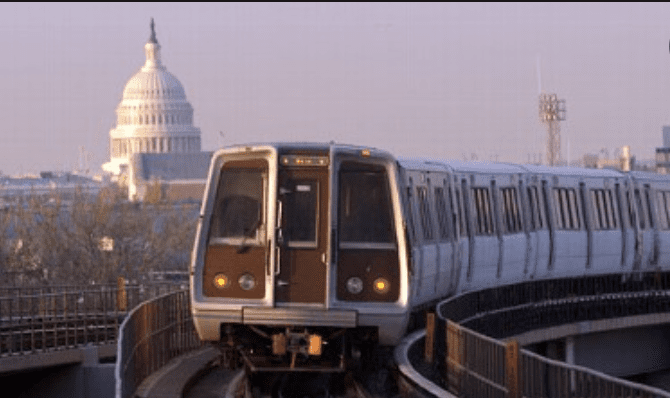Monday, August 8, 2022
WMATA (Metro) once again finds itself on the precipice of yet another “death spiral.”
This isn’t the first time the term was used to describe Metro. Former General Manager Richard White used the phrase over 20 years ago to describe the seemingly perpetual state of the region’s transit system.
Public transportation only works when it is safe, affordable, reliable, and convenient. Metro fails on all accounts.
For example, Metro is facing a $350 million budget shortfall. The 7000 series trains were taken off the tracks due to defects, and nearly half of the 500 train operators are not trained and/or let certifications lapse. And these are just the recent issues that have crippled the operations of Metro.
For years, Metro has not addressed multiple elephants in the room: The growing $3.7 billion unfunded pension and other post-employment benefits (OPEB) liability, let alone the billions of dollars in deferred maintenance. These issues will rear their heads sooner or later and there is no plan to address these threats to the system.
It is nice to wax eloquently about Metro’s past and lament about its current state, but Metro was set up to fail from the beginning. During my time on the Metro Board in the 1990s and more recently from 2015 through 2019, I tried to change the culture at Metro. So instead of continuing to “celebrate the problems,” I propose the following solutions.
- Make Metro bus and rail free for riders. Period. Abandon the fare structure; this will be a boon for ridership and eliminate the obligation to enforce fares.
- Scrap Metro’s governing structure. During my tenure as Metro Board Chairman from 2016 through 2019, we reduced the board from sixteen to eight members. Unfortunately this reform was not as effective as I hoped it would be.
- A five-member control board with total control over Metro needs to be implemented.
- The Federal Government must contribute $1 billion per year. This will make up for lost revenue from making Metro free to ride and match the combined contributions by D.C., Maryland, and Virginia. It’s unbelievable that the Federal Government contributes $0 to operate Metro, yet the system carries 70 percent of federal employees. We need politicians on the Hill to be part of the solution.
- The Federal Government also must assume the $3.7 billion unfunded pension/OPEB liability. They assumed the District’s $10 billion unfunded pension liability through the Revitalization Act of 1996 and they can do it again bringing significant financial relief to Metro.
- The four jurisdictions need to increase their slice of the dedicated funding to address the billions of dollars in deferred maintenance.
- Lastly, Metro needs to add more stops and additional lines. The second river crossing at Rosslyn, a new inner city line along Wisconsin Avenue, a new line to National Harbour, an expansion of the Silver Line, and expansions to other underserved areas will boost ridership. This is essential to service new areas where residents depend on single-occupancy vehicles as the preferred choice of transportation.
Until these changes are implemented, Metro will continue to be a failed system. And without Metro, the economic recovery for our region won’t happen. Public transportation must be treated as a necessity, like schools and emergency services, not a luxury. As Winston Churchill — one of my favorite political leaders — once said, “Now this is not the end. It is not even the beginning of the end. But it is, perhaps, the end of the beginning.”
Metro is still at the beginning of its journey, even after 55 years of service to the region. If we can address some of the items above, then maybe we can finally begin to move forward.
Jack Evans served on the Metro Board from 1992-1999 and from 2015-2019 and as Chairman of the Board in 1993, 1996, and from 2016-2019.
The Georgetowner publishes newsworthy opinions and commentary from members of the public. Views and opinions expressed are not necessarily those of the publisher or editorial staff.
